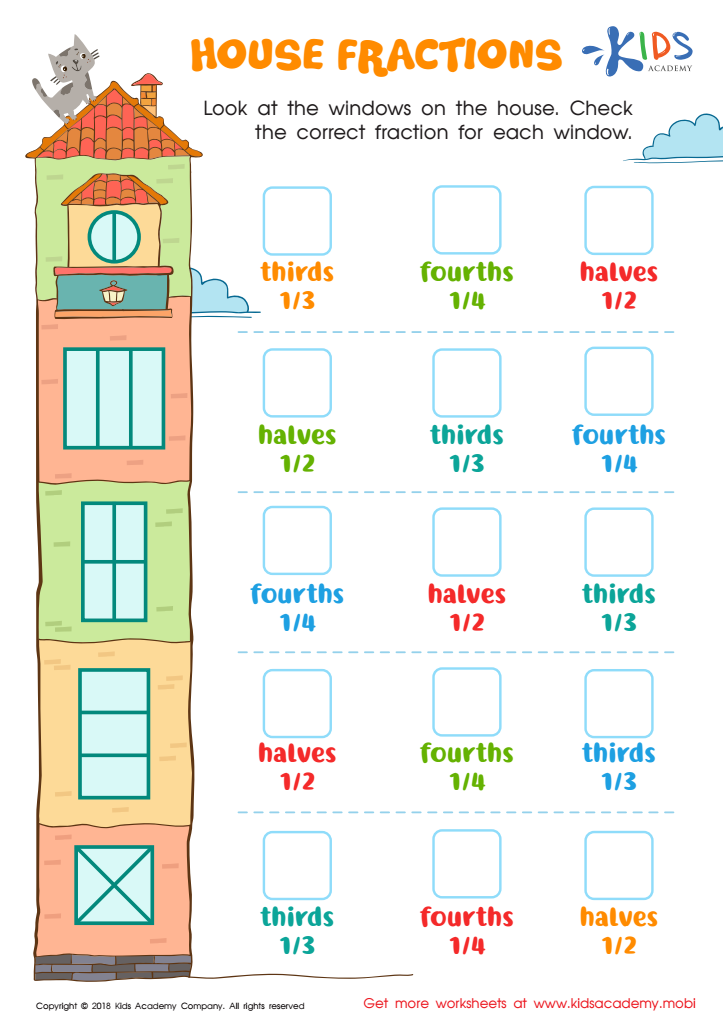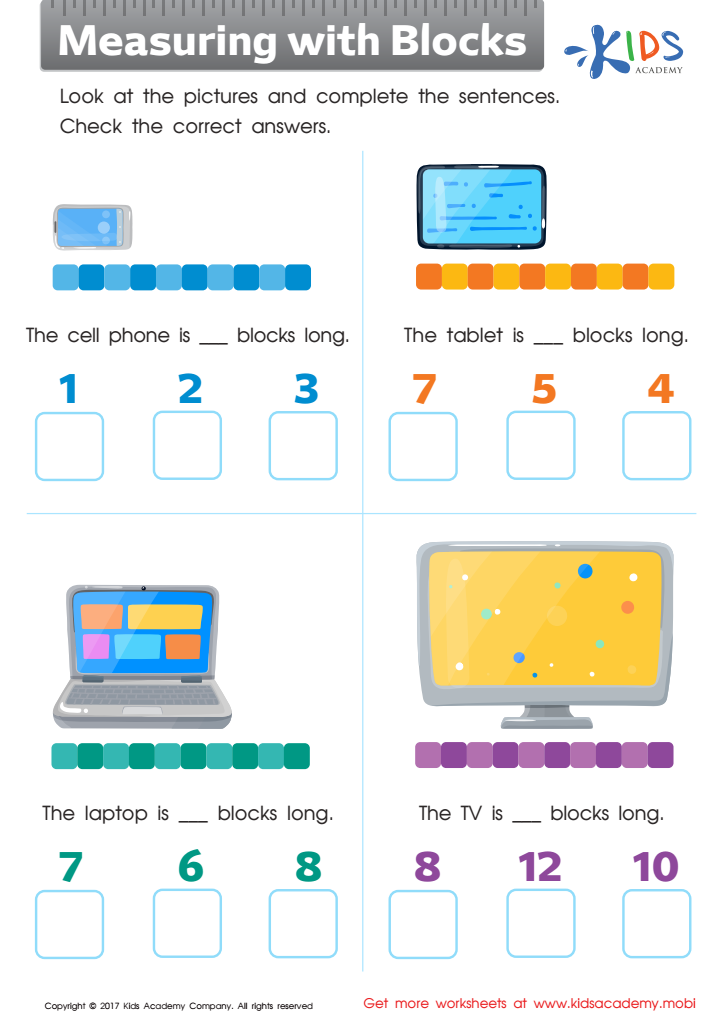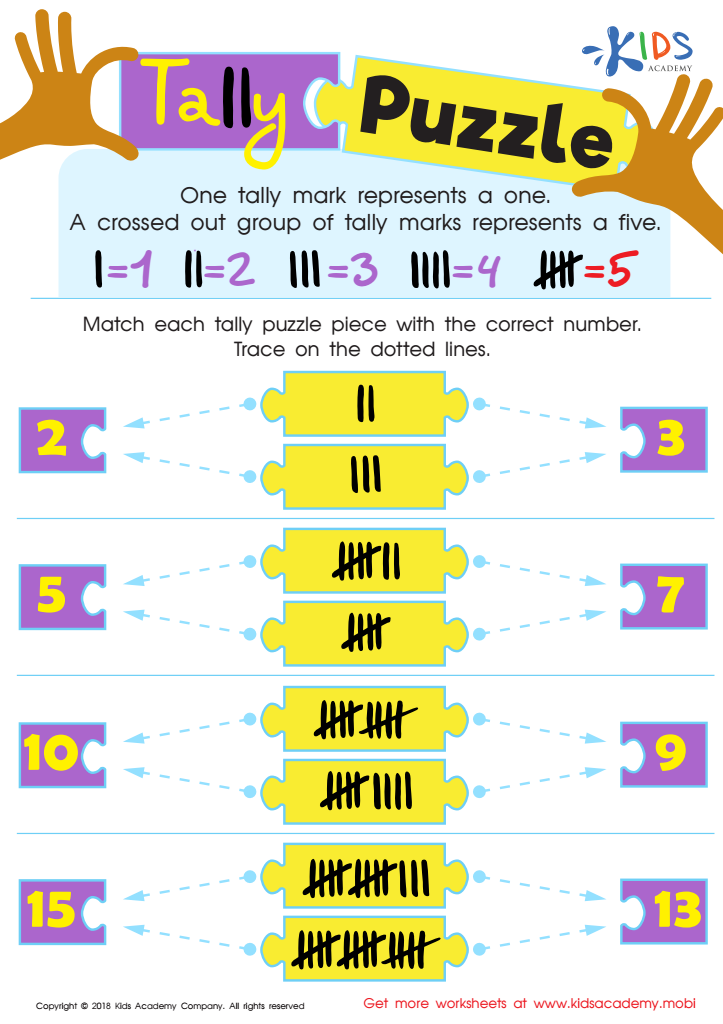Basic counting skills Easy Math Worksheets for Ages 7-8
3 filtered results
-
From - To
Enhance your child's foundational math abilities with our Basic Counting Skills Easy Math Worksheets, designed specifically for ages 7-8. These engaging, printable worksheets promote essential counting skills through a variety of fun and interactive activities. Kids will practice counting objects, identifying numbers, and solving simple math problems, all while developing confidence in their arithmetic skills. Our resources are aligned with educational standards, making them a valuable tool for both classroom settings and at-home learning. Start building your child's math proficiency today with worksheets that make learning enjoyable and effective! Explore our collection and watch your child thrive in mathematics!


House Fractions Worksheet


Measuring with Blocks Worksheet


Tally Puzzle Worksheet
Basic counting skills are foundational to a child’s overall mathematical development and play a critical role in their everyday lives. For parents and teachers, understanding the significance of these skills is essential in promoting a child’s cognitive and academic growth. At ages 7-8, children begin to transition from simple counting to more complex concepts such as addition, subtraction, and even early multiplication. Mastery of counting allows them to confidently tackle these challenges, fostering a positive attitude toward math.
Additionally, basic counting skills enhance problem-solving abilities, critical thinking, and logical reasoning, which are crucial not just in mathematics but across various subjects. Engaging with counting through everyday scenarios, like measuring ingredients in cooking or counting objects during play, contextualizes math in real life, making it more relatable and enjoyable.
Moreover, proficiency in counting helps children develop an understanding of number sense, which is key to later success in more advanced math topics. For parents and teachers, emphasizing these skills ensures children are well-prepared for academic progress and sets the foundation for lifelong learning. Supporting children in honing their counting abilities equips them with confidence and tools necessary to navigate future mathematical experiences.
 Assign to My Students
Assign to My Students














